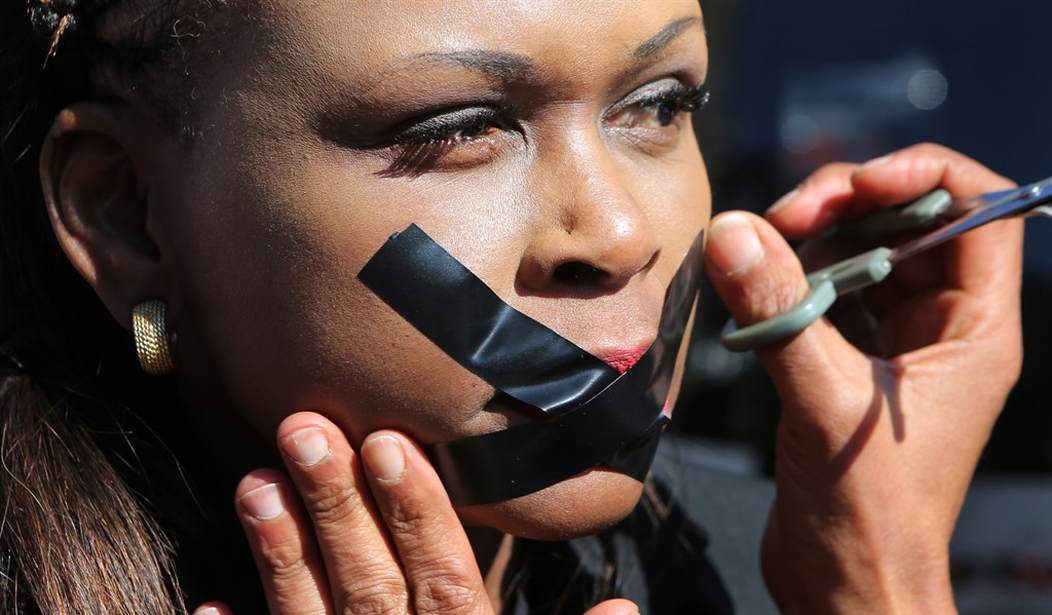The Associate Press is perhaps the most important news organization in the world. By a wide margin, it produces more content that people rely upon to stay informed than any other news source. In terms of providing a solid grounding of facts upon which people’s sense of what is going on, nothing comes close.
While almost all the prestige for high-profile journalism goes to the big names, Such as The New York Times and Washington Post, ABC, CBS, CNN, and Fox News, each of those outlets actually rely upon the AP for much of the content they distribute. Even in bylined stories put out by the prestige outlets, you will find all sorts of facts and even writing from the AP strewn throughout.
The AP is a collective of reporters funded by news organizations for precisely this purpose; it is a brilliant mechanism to virtually expand a newsroom of tens or hundreds of reporters in a central location (say, New York) to thousands spread around the country and the world.
Part of the implicit bargain that makes the Associate Press valuable to the diverse news sources is that it would be even more stringently fact-forward and non-ideological than any particular news source. In a newspaper one reads regularly it is possible to get a sense of the biases of a particular reporter or columnist; in an AP story, there should be no detectable bias at all, given the diverse range of people who will rely upon it.
Yeah, right. They aren’t even trying anymore.
My latest at Just the Facts, a quick look at how the recent AP Stylebook revisions to Transgender Coverage contradicts established science and tilts the rules for media coveragehttps://t.co/3QrBbqd27i pic.twitter.com/fSWeDz0c1V
— Gerald Posner (@geraldposner) June 18, 2023
Gerald Posner takes us through a quick review of the latest AP Style Guide–the style guides set the standard not just for Associated Press writers, but almost all writers in news media–on transgender issues. It is impossible to overstate how important such style guides are. They actually set the standard for most corporate writing as well–because the universal assumption is that the facts asserted are unimpeachable and the language suggested is scrupulously neutral.
The 70-year-old AP Stylebook is the leading style and usage guide for many newspapers, magazines, newsrooms, and public relations offices. Journalists and editors largely abide by its grammar, spelling, and punctuation rules and specific styles for everything from numbers to acronyms. AP editors are supposed to regularly update the Stylebook in order to keep up with changes in language and societal norms.
The revised Transgender entry runs 3,000 words, setting forth what it says is the acceptable standard for journalists when “writ[ing] about and interview[ing] transgender people.” It starts with what seems like a good rule, that reporters must use “accurate, sensitive and unbiased language.”
That, after all, is the value proposition of the AP: factual and neutral information that can be used by people of all ideologies to describe reality.
So how factual and neutral is the AP Style Guide on transgender issues?
Sometimes, the AP Stylebook contradicts established science, other times ignore inconvenient evidence to the contrary, and repeatedly adopts rules that endorse only one side of what is a vigorous ongoing controversy.
Some examples:
“Use the term sex assigned at birth instead of biological sex, birth gender, was identified at birth as, born a girl and the like…. Avoid terms like biological sex, along with biological male and biological female.”
On the issue of biology being so passé, the AP is insistent. A dozen times the style guide reinforces that a person’s gender is “assigned” at birth. Richard Ostling, a former AP national reporter (now a GetReligion contributor), notes that, “That’s central to LGBTQ+ insistence that each infant’s gender is arbitrarily imposed from outside and subject to change, so this word allies the news media with one outlook in an intense societal debate.”
If children meet guidelines and are showing signs of puberty, they can begin taking puberty blockers — fully reversible prescription medication that pauses sexual maturation, typically given in injections or skin implants.
The AP editors — without any supporting citation or caveat — set the rule that journalists writing transgender stories must remember that puberty blockers are “fully reversible.”
In just a few sentences–and remember, these sentences have the effect of command for most people doing any kind of commercial writing outside opinion pieces–the Associated Press has taken the position that biological sex does not exist–it is “assigned”–and that puberty blockers (which are repurposed cancer drugs not approved by the FDA for the purpose) are “fully reversible” and have no permanent side effects.
The first assertion is, at the very least, highly contested not just among laymen by scientists, and the second is flat-out false. The only people who make that assertion are activists, medical or not. On its face the idea is absurd. The list of side effects can be looked up by anybody, and the list while taking them is impressive enough (aren’t they always), the long-term effects on children (with which we have very little actual experience, remember) are getting pretty impressive too. Rapid osteoporosis is almost a given. The lack of developing functional sex organs is the obvious and intended effect. Depression and suicidality shoot up, not down.
That this is an acceptable side effect is only the case if you don’t want to reverse it. Simply getting off hormone blockers in a few years will have dramatic effects on one’s sex development. Go read up on “puberty blockers.” They are hardly benign. These are serious drugs.
The AP doesn’t think so. They are “fully reversible.” Citing absolutely no evidence.
One of the typical moves made to justify risible factual assertions is the appeal to generic “experts,” as if there is nothing contested about various assertions. The AP doesn’t even bother to refer to specific experts or studies or in fact anything at all other than a Platonic ideal of an “expert.” The great “they,” whoever “they” are.
For journalists who are not well versed in covering transgender issues, the AP sets definitions for words that are likely to pop up during their reporting. Below are some examples where I highlight portions the AP editors present still contested concepts as settled. Often, just a phrase makes something seem as though it is established. And it all reinforces the progressive concept that gender is a matter of ever-changing choices, based on how someone feels, and is divorced entirely from biology.
Gender: “A person’s sex and gender are usually assigned at birth by parents or attendants and can turn out to be inaccurate. Experts say gender is a spectrum, not a binary structure consisting of only men and women, that can vary among societies and can change over time.”
“Assigned at birth” is a loaded, not factual term. It assumes that sex is a construct imposed by society and not a real thing that describes a biological phenomenon. This entire concept is utterly antiscientific. Go grab any biology textbook written more than 5 years ago, before the critical theorists got ahold of textbook publishing, and you will find nothing of a sort.
A great example of how utterly incoherent the “assigned at birth” assertion is comes from this interview Matt Walsh did with Michelle Forcier, a doctor. When trying to make this argument Walsh asks her whether chickens who lay eggs can be male, and her answer is incoherent and devolves, literally, into the question “Can a chicken cry?” Watch:
Sex: “A person’s sex is usually assigned at birth by parents or attendants, sometimes inaccurately. Sex often corresponds with but is not synonymous with gender, which is a social construct.” [emphasis added]
The Associated Press is, through its Style Guide, setting the terms of the debate and preemptively ruling out the idea that any of these ideas even can be challenged. It asserts things as facts that are either false or highly contested and excludes the possibility that any challenge to the ideas pushed by the alphabet people is anything but objectively true.
In practical terms what does this mean?
Well, at the very least, it means that you can trust nothing the Associate Press tells you as being simply factual. And that is a tragedy because the AP is foundational to our entire news reporting infrastructure. If the New York Times or MSNBC gets something wrong that is frustrating and even infuriating. If the AP is pushing an agenda then how can we be sure that anything new we hear is even real?
Everything becomes Jussie Smollett, a morality tale.
Now chances are good that in most things the AP doesn’t have the time or inclination to distort things for its own purposes but on any contested issue one must now assume that it has taken a side. By now this shouldn’t be shocking, of course, but it should still be troubling.
Knowingly or not, everybody relies on the AP to tell us what is happening. Now we have to wonder: is it real, or simply a story?







Join the conversation as a VIP Member